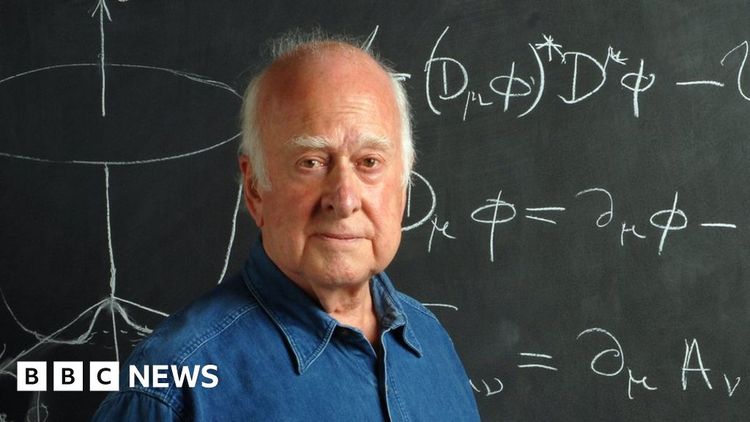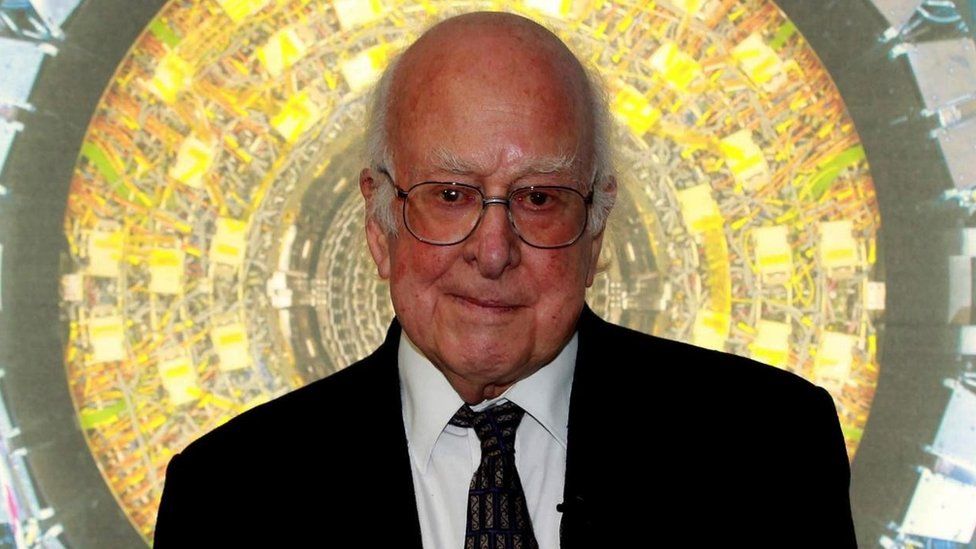Peter Higgs obituary: the shy man who changed our understanding of the Universe

The image for this blog post comes from PA Media.
Blog post - Climate and Science News from BBC If you're interested in the latest updates about climate and science, then you might want to check out the BBC news. Recently, the broadcasting company has been covering a wide range of topics related to these fields. One article, for example, detailed how scientists have found evidence of microplastics in the atmosphere. These tiny plastic particles are a growing concern for the environment and human health, and this discovery suggests that they are even more widespread than previously thought. Another piece reported on new research that suggests the melting of Arctic sea ice is disrupting the ocean's currents, which could have far-reaching effects on weather patterns and marine life. Meanwhile, the BBC also covered the recent launch of the European Space Agency's new satellite that will monitor Earth's sea levels more accurately than ever before. This data will be crucial in tracking how much sea levels are rising due to climate change. In short, the BBC news is a great resource for anyone interested in staying informed about the latest developments in climate and science. Whether you're simply curious or actively engaged in tackling these issues, it's worth checking out the latest articles and reports.

The 'God particle' was a term coined for the Higgs boson, which was the focus of Professor Peter Higgs' research and gained him widespread recognition. It is more accurate and proper to refer to it as the Higgs boson instead of the former nickname.
In the 1960s, he devised an innovative concept to elucidate the reason behind the mass possessed by the fundamental units of the Universe, namely atoms.
The concept he proposed about what connects the Universe, which was also explored by other researchers simultaneously, initiated a five-decade exploration for the ultimate goal of physics.
Scientists used the Large Hadron Collider at Cern, based in Switzerland, to ultimately find the particle in 2012. This announcement then finished off what is known as the standard model of particle physics.
He was a man who was well-known for being timid, and he stated to reporters: "It feels quite pleasant to be correct on occasions."
A year after, he was awarded the Nobel Prize in physics for his contributions.
Born in 1929 in Newcastle upon Tyne, Peter Higgs excelled academically during his schooling years in Bristol. Despite being recognized with awards for his scientific efforts, his successes were specifically in the field of chemistry rather than physics.
After finishing a Doctor of Philosophy degree at King's College located in London, he lost a job opportunity to his acquaintance. However, he chose to join the University of Edinburgh where he persisted in exploring the query of why several particles possess weight.
Although his theory faced difficulties in getting published in scientific journals due to lack of comprehension by many, it eventually made its way to publication in 1964.
Although there have been speculations about sudden "Eureka" moments, he explained that his theory was developed gradually throughout several years.
The image used in this blog post is from Getty Images.
Peter Higgs resided in Edinburgh for a significant portion of his lifetime.
During that period, there were two additional teams of researchers who published findings on the identical concept.
The Higgs boson was discovered after half a century of scientists searching for it using some of the most impressive equipment available on our planet.
Professor Higgs ended his tenure at the University of Edinburgh in 2006. However, he maintained his interest in the activities taking place at Cern in Geneva. Scientists at this institution were engaged in an attempt to discover the Higgs boson by utilizing the immense power of the Large Hadron Collider.
The Atlas detector at Cern's Large Hadron Collider is being built in Geneva.
The most dominant particle accelerator constructed, which had an expense of $10 billion, was said to have the capability of verifying or refuting Higgs's proposal.
The boson was given the moniker 'God particle' by the press, taking inspiration from a book authored by Nobel Prize winner Leon Lederman. However, researchers have expressed their disapproval of this label, as they believe that religion should not have any influence on physics, which is based on empirical evidence.
Physicists from Cern made a huge announcement in 2012 about their discovery of the Higgs boson, and it was met with a lot of excitement.
Peter was notified in advance that he should attend the CERN seminar, otherwise, he would regret it. As a result, he altered his travel arrangements to make a trip to Geneva for the exciting announcement.
Higgs expressed that the wait for the discovery was lengthy, but it could have been extended even further. He wasn't certain if he would still be present when the discovery was made. When he began his work, he was unsure if he would live long enough to witness the breakthrough.
The above article discusses the importance of mental and emotional health in addition to physical health. The author highlights the fact that while physical health is important, mental and emotional health should not be overlooked. The article stresses that people should make time to take care of their mental and emotional health, whether it be through meditation, therapy, or simply setting aside time for relaxation. The author also notes that mental and emotional health can impact physical health, further emphasizing the importance of taking care of all aspects of one's health. Overall, the article serves as a reminder to prioritize all aspects of health and to take steps to maintain and improve them.
Peter Higgs collaborated with distinguished scientists from various countries, such as Francois Englert and Rolf Heuer.
After a full year had gone by, the Royal Swedish Academy of Sciences attempted to get in touch with Peter Higgs. It is a common occurrence for Nobel Prize recipients to miss the pivotal call notifying them of their victory. However, Peter Higgs had not yet obtained a cellphone at the time. Consequently, the announcement was made without him being present.
While walking on the street, a man's neighbor informed him that he had been declared a winner, along with Belgian physicist Francois Englert.
Initially, he gained recognition for his remarkable discovery related to the boson. However, he became famous for not showcasing his extroverted personality as he was more invested in his research than acquiring popularity.
Ken Peach, a retired professor from Oxford, shared his experience of attending a scientific conference where the name of Peter Higgs was frequently mentioned by the scientists.
When I spotted Peter at the coffee shop, I couldn't help but greet him and exclaim, "Wow, Peter, you're such a superstar!" He answered back with a bashful grin.
A few companions have expressed that Peter Higgs didn't leave the impression that would be anticipated from a physicist with his level of skill.
"According to the late Prof Michael Fisher in 2021, he wouldn't have described him as being overly hesitant or reserved."
In my opinion, he may have been too introverted, which may have negatively affected his professional growth.
Pallab Ghosh enters the biggest particle accelerator globally, responsible for the discovery of the Higgs boson.















































